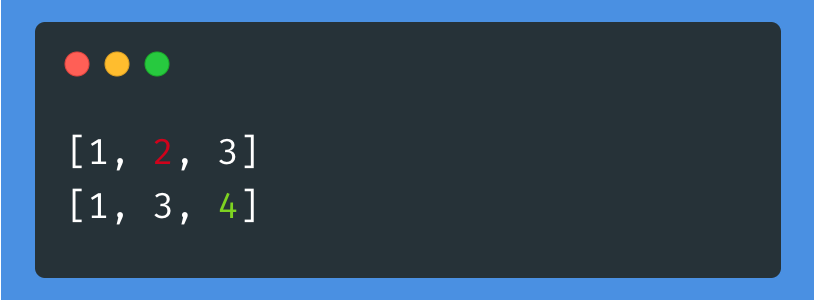diff based on Myers' algorithm.
def diff(
a: Sequence[S], b: Sequence[T], *, key: Optional[Callable[[S, T], bool]] = None
) -> Tuple[List[Optional[int]], List[Optional[int]]]: ...Returns the correspondence between two sequences a and b.
key is a comparison function (if needed).
import seqdiff
a = [1, 2, 3]
b = [1, 3, 4]
a2b, b2a = seqdiff.diff(a, b)
assert all(a[i] == b[j] for i, j in enumerate(a2b) if j is not None)
assert all(a[j] == b[i] for i, j in enumerate(b2a) if j is not None)
print(a2b)
print(b2a)[0, None, 1]
[0, 2, None]
def print_diff(
a: Sequence[S], b: Sequence[T], *, key: Optional[Callable[[S, T], bool]] = None
): ...Pretty print the diff between two sequences a and b.
key is a comparison function (if needed).
import seqdiff
a = [1, 2, 3]
b = [1, 3, 4]
a2b, b2a = seqdiff.print_diff(a, b)The return value is a pair of tuples. The first tuple contains the index where the item from the first sequence appears in the 2nd sequence or None if the item doesn't appear in the 2nd sequence. The 2nd tuple is the same but listing the corresponding indexes for the 2nd sequence in the first sequence.
use seqdiff;
let (a2b, b2a) = seqdiff::diff(&[1, 2, 3], &[1, 3]);
assert_eq!(a2b, vec![Some(0), None, Some(1)]);
assert_eq!(b2a, vec![Some(0), Some(2)]);See the doc for more info.
- tokenizations - Robust and Fast tokenizations alignment library for Rust and Python
- This library depends on
seqdiff
- This library depends on


